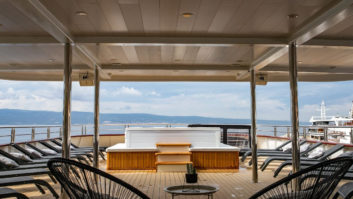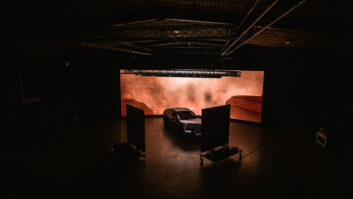Acquisitions, takeovers and mergers are, of course, standard business practices that enable a larger or more financially powerful company to buy other, smaller companies in the same market. By doing this, the new owner is able to grow, as well as bringing on board new talent, clients and facilities. While commonplace in the manufacturing, financial services, banking and retail sectors, such moves had traditionally been less frequent –although not unknown – in the audio for rock & roll touring sector, which always considered itself less corporate.
That attitude has changed considerably in the last 20 years, with the emergence of two big groups, each having an international reach, which have both grown by acquiring successful rental operations in key territories. Clair Brothers, founded in 1966, had already built up its reputation for designing systems as well as renting equipment to major rock acts in the US before it began expanding, first through setting up a Japanese subsidiary in 1980 and then, ten years later, buying Nashville hire company MD Systems.
Clair established a base in Europe in 1994 through Swiss firm Audio Rent (which became AudioRent Clair in 2008), but perhaps more significant was the 2000 acquisition of its main US competitor, Showco. Eight years later it bought DB Sound of Chicago and leading UK rental company Concert Sound (renamed ConcertSound Clair).
ConcertSound Clair became Clair UK in 2013. In 2017 Clair Global acquired another major British name, Britannia Row Productions, which has retained its brand identity. Other acquisitions have included JPJ Sound in Australia (2015), Eighth Day Sound Systems of Cleveland (2020), with the most recent being this year: AudioRent Clair bought Berlin-based Black Box Music in April, while in September Brit Row acquired Skan PA Hire.
CONSIDERABLE EXPANSION
In Canada, AV and entertainment technology provider Solotech has expanded considerably since being founded in 1977. It has opened multiple offices in both the US and Canada, while in the UK it bought SSE Audio Group (2018). SSE Audio was founded by John Penn in 1976, became a group in 2004 and later acquired well-known British touring names Wigwam (2013), Capital Sound (2018) and BCS Audio (2019).
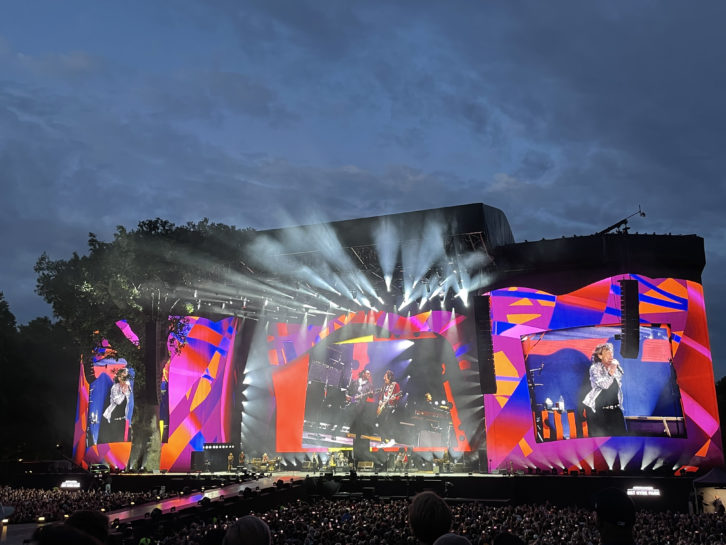 While the members of the SSE Audio Group still operate as separate brands and carry on close working relationships with clients, Dan Bennett, senior hire manager, Solotech UK, acknowledges that the way the music business runs today is very different to how it was in the past, which has had a direct impact on touring. “It’s something that has come with the Spotify era,” he explains. “The tour is no longer a promotional tool for an album. From about 2009 onwards, tours had to start paying for themselves. Initially people were doing that by region, knowing that Germany makes money and France is also a good area. Then every individual show had to make money. It’s become more granular.”
While the members of the SSE Audio Group still operate as separate brands and carry on close working relationships with clients, Dan Bennett, senior hire manager, Solotech UK, acknowledges that the way the music business runs today is very different to how it was in the past, which has had a direct impact on touring. “It’s something that has come with the Spotify era,” he explains. “The tour is no longer a promotional tool for an album. From about 2009 onwards, tours had to start paying for themselves. Initially people were doing that by region, knowing that Germany makes money and France is also a good area. Then every individual show had to make money. It’s become more granular.”
Bennett joined SSE Audio in 2004 and has seen the growth of both the company itself and the live sound rental market as a whole. “We were still very active in the academy market back then,” he says. “It was possible to get very good money for half a truck of NEXO Alpha and half a truck of lights. But then, medium-sized companies that were starting up priced us out of the market. This pushed us into the arena market but later they moved into that as well, which pushed SSE and Brit Row further up. There’s always a company wanting to grow and push. But arena money is now much bigger.”
Bryan Grant joined Brit Row in 1979 and, with original crew member Robbie Williams, bought out the company from Pink Floyd five years later. Still a director of Brit Row since the acquisition by Clair, Grant has seen the touring sector develop from its early days to where it is today. “The live sound market has grown up,” he says. “No one I know of my generation joined this business to make a pot of money, we just ran away and joined the circus. It was a cottage industry that, on the manufacturing side, was built up by companies like Harman buying smaller companies. The same has now happened with rental and we’ve also seen consolidation of record labels, promoters and agents.”
Grant points to Clair Global still being a family-run concern, despite its size. This, he says, means it does not have to answer to venture capitalists or shareholders. “They buy successful companies and let them get on with it. Successful companies have an ethos and although they may be part of a big group, the clients are still dealing with the people they did before. That’s important.” Grant adds that the financial stakes and expectation of quality are now much higher, with the whole music and touring business now having to examine economies of scale.
While some established figures have left Solotech since their companies were acquired, including John Penn, who has retired, Dan Bennett says there is still continuity from the staff that remain: “We’ve only just said goodbye to our forefathers. But John Penn was very good at building up a level of middle management, so a lot of relationships have been maintained.”
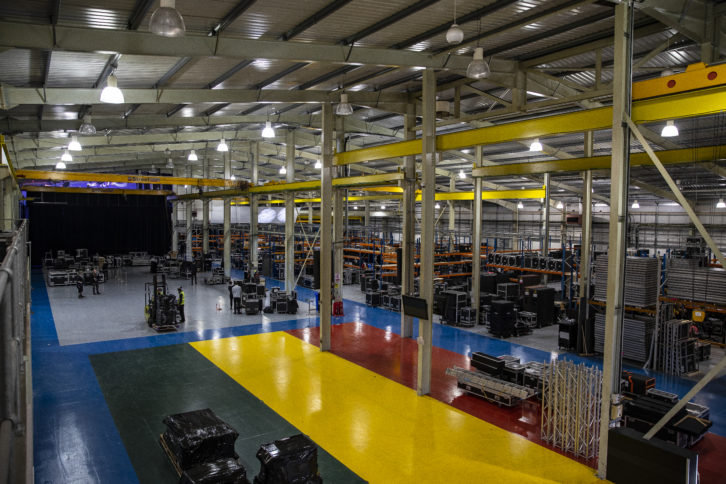 With so many of the medium-sized and larger companies that serviced national and international tours now part of a handful of entertainment technology groups, it may appear that the market has polarised between the big guys at one end and smaller, more localised operations at the other. Andy Dockerty, managing director of Liverpool-based Adlib, which can now claim to be the biggest independent hire company in the UK, observes there is still a middle ground. “The bigger companies just got bigger,” he says. “But the lower end is not just one-man, ‘weekend warrior’ type outfits. If they’ve got a rig and are giving a band personal service, they will grow with them.”
With so many of the medium-sized and larger companies that serviced national and international tours now part of a handful of entertainment technology groups, it may appear that the market has polarised between the big guys at one end and smaller, more localised operations at the other. Andy Dockerty, managing director of Liverpool-based Adlib, which can now claim to be the biggest independent hire company in the UK, observes there is still a middle ground. “The bigger companies just got bigger,” he says. “But the lower end is not just one-man, ‘weekend warrior’ type outfits. If they’ve got a rig and are giving a band personal service, they will grow with them.”
Dockerty continues that Adlib itself is growing, with £6 million spent on equipment since January this year, although supply problems (see page 34 for more on this), the UK leaving the EU and other factors continue to cause problems.
“There is a shortage of talent but the industry is growing again,” he says. “There is not enough gear, though. If we had the crew and gear we ordered a year ago, we could do more. It’s frustrating. It means sub-hiring in stuff at massive cost, from within the UK if you’re lucky, but if it’s from Europe you have to pay for carnets and things like that. Pre-Covid we were a bunch of hobbyists and knew we needed to make £1 more than something cost us. Now we’re more commercially aware but still in the same position.”
Adlib has expanded over the years to encompass more than just audio. It also offers lighting, video, rigging and staging, something many other companies, particularly in the smaller to middle ground, are now doing. Such a company is Bristol-based King Sound Reinforcement, which, like most mid-sized companies today, operates mostly in and around its home city, but also undertakes national tours for smaller name acts. “We were an audio company when we started in 1995 but now do lighting and staging,” explains managing director Paul King. “We are medium-sized and the biggest in Bristol, with a permanent staff of eight. We do a lot of venue work and some corporate. One of our big gigs is Bristol Pride, for which we do sound, lights and seven stages.”
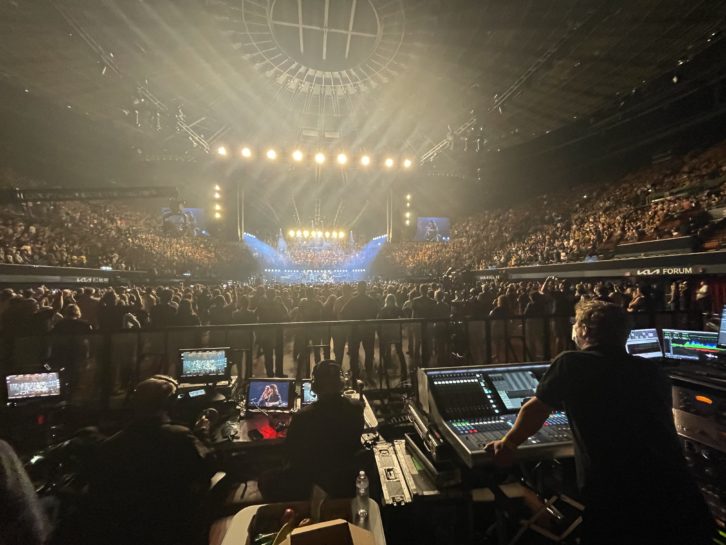 King says that in speaking to audio companies of a similar size, it appears there are “definitely opportunities for smaller companies to grow into the middle ground”. Like larger companies such as Adlib, with which it has a working relationship, Brit Row and the Solotech brands, King Sound Reinforcement has faced problems in getting both crew and equipment of all kinds to service an unprecedented number of live productions. “There was a shrunken workforce,” King adds. “You can’t shut down an industry for two years and expect freelance people to be there when it opens up again. Everybody and their dog wanted to put on an event this year. A lot of companies over-promised and under-delivered. We couldn’t get toilets and there were labour shortages for building stages. But we came out OK and are on an upward trajectory.”
King says that in speaking to audio companies of a similar size, it appears there are “definitely opportunities for smaller companies to grow into the middle ground”. Like larger companies such as Adlib, with which it has a working relationship, Brit Row and the Solotech brands, King Sound Reinforcement has faced problems in getting both crew and equipment of all kinds to service an unprecedented number of live productions. “There was a shrunken workforce,” King adds. “You can’t shut down an industry for two years and expect freelance people to be there when it opens up again. Everybody and their dog wanted to put on an event this year. A lot of companies over-promised and under-delivered. We couldn’t get toilets and there were labour shortages for building stages. But we came out OK and are on an upward trajectory.”
LOCAL OPERATIONS
A recent development in the live sound market is the number of small, local PA operations that have appeared, run by musicians, DJs or audio/AV technicians using their own rigs and ancillary equipment. Among these is Serenityaudio, run by Danny Kitainik in Chippenham, Wiltshire. Kitainik has a background in audio and AV, having worked as a sound engineer for Encore in the 1980s and 90s and serving as managing director of Cue Pro Audio from 1993-99. After spending some time in IT, Kitainik decided to get back to what he knows best, working on gigs using a band’s system before investing in his own NEXO rig.
Since then Kitainik has built up more work, providing audio, lighting and staging for festivals and events in the area, as well as working on concert tours, corporate presentations, weddings and private parties. “When I started, my business was purely maintenance and repairs, with only about 20 percent on productions,” he comments. “Now it’s approximately 60 percent production with the rest being installations and very little on repairs.”
Live sound: whether via smaller, cottage industry concerns, or large corporates, there are more challenges than ever before approaching 2023. But, as the saying (sorta) goes, the beat must go on.
